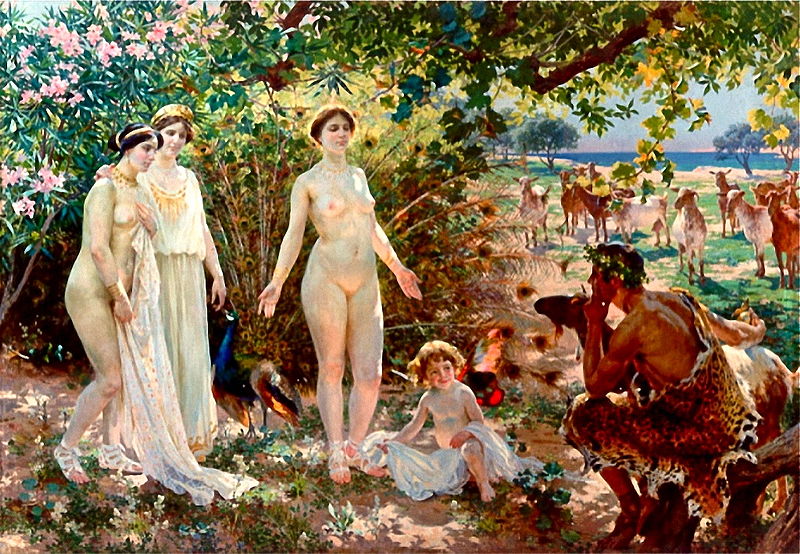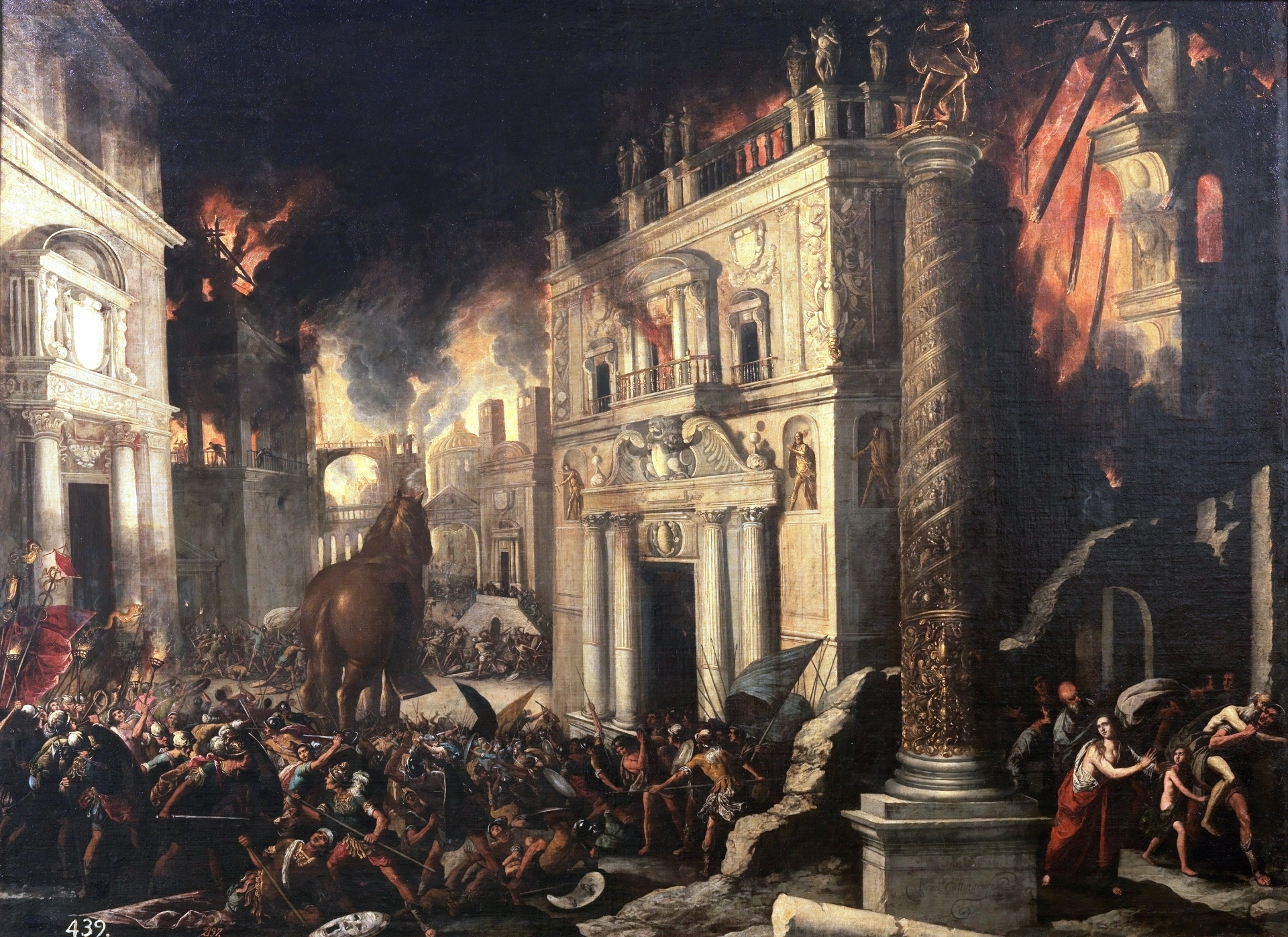 |
The contrast between them, and their personal battle, was a microcosm, a personification, of the factions engaging in the war in Troy.
The Trojan, Hector, was a civilized, rational man that had to, and did, balance his priorities in life. The heir to Priam's throne, he was the commander of the Trojans and their allies, and it was his responsibility to ensure the safety of his city and its people. Privately, Hector is a model man about the house: a loving and devoted husband and father, a man who rightfully is concerned in the deepest possible way about his wife Andromache, and their infant son Scamandrius, nicknamed Astyanax (lord of the city) by the people. Like any man who has been through the thick of battle, his first concerns lie with them, but ever dutiful, Hector refuses to give in to his wife's pleas to command the action from atop the sturdy walls of Troy, explaining that he would be ashamed if he were to do such a thing- to hang back while his devoted troops die around him.
 |
| Hector's last visit with his wife and son |
His opponent, Achilles, was just the opposite, a man that was very much the personification of the wild savagery of the uncivilized. Achilles did have his courteous and gentlemanly side, and this was quite important in establishing the final notes that ended the Iliad, but it is merely incidental, not the focus of his character throughout most of the poem, just the same as Hector's own darkness is incidental to the overall character that we see as told by Homer.
In contrast to Hector, Achilles is a man that, when it comes down to it, cared nothing of others. He is consumed wholeheartedly throughout the Iliad in his self-absorbed rage- directed first at Agamemnon, and then at Hector. Feeling slighted at Agamemnon's confiscation of his prize, Briseis (the fact that she was a living human being was not considered important either by the standards of the heroes in the war or Homer who wrote about them), Achilles withdraws from the fighting, essentially telling the Greeks to not come crying to him when Hector and the Trojans start killing them in droves, and that their blood is on Agamemnon's hands. He even has his immortal mother Thetis get Zeus to intervene on his behalf to do just that very thing.
Achilles puts his honor and reputation above any human life. He isn't fighting for any noble cause, rather his goal for the contest is to secure everlasting fame, to have men speak of him through all the ages yet to be. To him it mattered not how many of his comrades died at the hands of the enemy, the only thing that mattered was the elevation of himself and his glory.
Achilles' refusal to fight, even after a half-hearted, though (mostly) good-intentioned overture from Agamemnon and the Greek high command (the embassy deserves its own entry) led to more deaths, including that of his best friend, Patroclus. Instead of being self-reflective and recognizing his own faults towards that happening however, Achilles blindly blamed Hector for the deed, and sought to utterly destroy him.
Again making it evident that he doesn't care for anyone, once properly equipped, Achilles seeks to rush headlong into battle, despite the fatigue of his comrades from yet another grueling day of fighting which included the battle for Patroclus' corpse. The council of Odysseus carries the day and the soldiers rest and eat, preparing for the next fight.
In that next fight, Achilles would confront Hector, and the climax of the Iliad, slowly built up by Homer through pools of blood and pools of tears, was at last at hand, and the two motifs: civilization and savagery would clash also.
The defense of the city and the community, the nobility and idealism of civilization is represented by and through Hector. In Achilles, we see the image of what the Greeks are actually there for: revenge, personal honor and glory, and greed. And yet, the reader is left in no doubt as to the outcome of the match. This biggest, main event of the Trojan War is a bit akin to an Undertaker match at WrestleMania, if you'll pardon the wrestling pun. Undertaker is undefeated on the biggest stage of that industry, just as Achilles is undefeated in direct combat, the master of war. We as the audience know going in that Undertaker won't lose, no matter what he has to do or how far he's taken, and we know that Achilles won't either.
Achilles, with the assistance of Athena, strikes Hector down, and responds to his pleading for civilized treatment with taunts that he'd drag Hector's corpse around his friend's funeral bier and feed it to his dogs. Darkness and light collided, and this time, darkness won.
 |
| Achilles dragging Hector's body |
Hector on the other hand, would have liked to have chosen life, but could not. His city was fated to die, and was now nearly defenseless with his death. He was motivated by the well-being of his community and loved ones.
The contrast between the two champions and the motifs they represent seems to echo even beyond the cessation of hostilities, as the Greeks, though victorious, would face many hard homecomings in the Nostoi and Odyssey, and though victorious, their arrogance or carelessness ruined or set back many of them. In the end many of them, including Agamemnon, were not fated to enjoy the full fruits of their victory, giving the laws of civilization something of an (incomplete) posthumous triumph.






